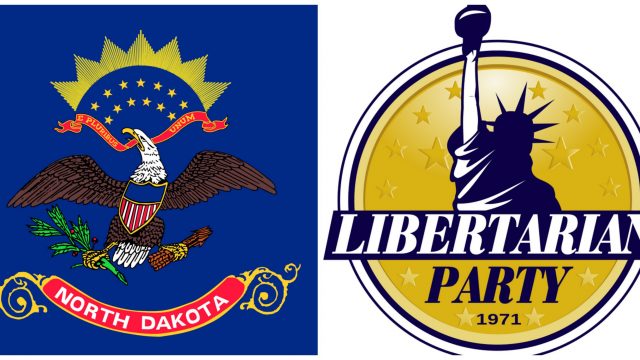Eric Olson: Forget A Third Party, North Dakota Needs A Second Party

You typically hear Libertarians such as myself advocate for a third party to bring choice to the otherwise one dimensional political landscape of left vs right.
The reality of our current situation is that North Dakota is a one party state.
The current state Senate is 68% Republican, the House is 76% Republican, we have had only Republican Governors for the past 24 years. We have single party with a super majority whose leaders have enormous unilateral influence over the policies of our entire state.
The Democratic Party in North Dakota has failed provide viable alternatives for most political contests in North Dakota, and this year it seems unlikely that they will provide anything more than a placeholder candidate for the state wide races, if that.
An election with one choice is not an election, and the Democratic Party simply does not appeal to enough of the voter base in North Dakota to provide a viable second option outside of a few districts.
[mks_pullquote align=”right” width=”300″ size=”24″ bg_color=”#ffffff” txt_color=”#000000″]The Democratic Party in North Dakota has failed provide viable alternatives for most political contests in North Dakota, and this year it seems unlikely that they will provide anything more than a placeholder candidate for the state wide races, if that.[/mks_pullquote]
The people of North Dakota deserve to have a choice and the Libertarian Party has the most potential to provide that choice.
This year the Libertarian Party of North Dakota will provide several state legislative candidates despite the primary requirement, (1.5% vote in the primary) that has prevented third party entry to those races in the past, largely due to the fact that voters are unaware that candidates who are not opposed in the primary need those votes.
Additionally the party expects to run a full slate of state wide candidates. Libertarian support for civil liberties, and non-interventionist foreign policy, as well as personal freedom exemplified by the party’s endorsement of marijuana legalization should appeal to many would be democrat voters, while offering Republicans the fiscally conservative candidates their own party has failed to provide.
Regardless of a person’s politics, a super majority is not in the best interest of anyone other than those who control it.
It is becoming more apparent as this election cycle progresses that supporters of both major parties do not feel they are being properly represented by their party leaders. Self-identified independents now outnumber supporters of either party, and in some polls account for almost as much as both of them together.
There is one and only one way to make politicians and their parties responsive to voters, that is to show them that they can be voted out.




